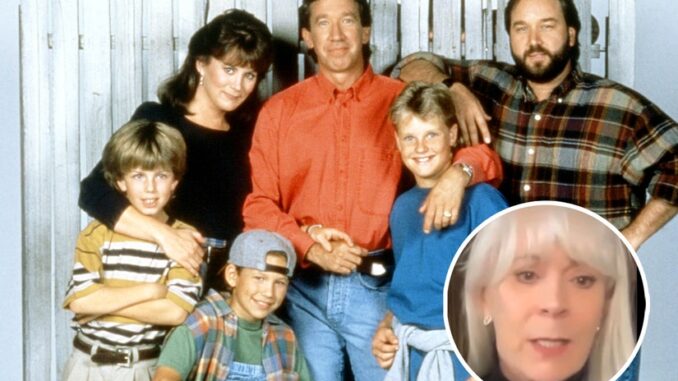
The Wrench Wrench: Why Patricia Richardson Left the Toolbox Closed on a Home Improvement Reboot
Patricia Richardson, forever etched in television history as Jill Taylor, the pragmatic, intellectual, and ultimately grounding force to Tim Allen's manic Tim "The Tool Man" Taylor, has made it abundantly clear: a Home Improvement reboot is not in her future. It's not a simple scheduling conflict, a disinterest in revisiting the role, or even a creative disagreement. Richardson's reasoning, like Jill herself, is thoughtful, layered, and ultimately speaks to a deeper understanding of legacy, grief, and the delicate nature of capturing lightning in a bottle twice.
One of the most poignant reasons Richardson cites is the absence of Earl Hindman, who played the sage and ever-present neighbor Wilson Wilson Jr. While his face was famously obscured by the fence, Hindman's performance was the soul of the show, offering Tim nuggets of wisdom and perspective amidst the chaos. "Earl was the heart of the show," Richardson has said, emphasizing the irreplaceable void his passing left. Imagine a Home Improvement reboot without the philosophical pronouncements delivered from behind the picket fence. It would be a show fundamentally altered, a ship sailing without its rudder. Hindman's absence isn't merely a missing character; it's a missing piece of the show's very DNA, a gaping hole that no replacement could adequately fill. This respect for her co-star and the undeniable impact he had on the show demonstrates Richardson's loyalty and understanding of what made Home Improvement so special.
Beyond the irreplaceable absence of Hindman, Richardson seems wary of the potential pitfalls of revisiting a classic. The landscape of television has drastically changed since the show's initial run in the 90s. What was once considered groundbreaking family sitcom fare might now feel dated, contrived, or even tone-deaf in a world grappling with increasingly complex social issues. The humor, rooted in Tim's "more power!" bravado and stereotypical masculine blunders, might not resonate with contemporary audiences. To attempt to recapture the magic of the original without adapting to the changing times risks tarnishing the legacy of the show and leaving fans disappointed. Richardson, a seasoned actress with a keen eye for quality, seems acutely aware of this danger. She is not willing to sacrifice the integrity of the original for the sake of nostalgia.
Furthermore, Richardson's reluctance can be interpreted as a respect for the original narrative arc. Home Improvement ran for eight successful seasons, allowing its characters to grow, evolve, and ultimately reach a natural conclusion. The boys matured, Jill pursued her career, and Tim, while remaining perpetually tool-obsessed, learned valuable lessons about family and responsibility. To revisit these characters now, decades later, risks disrupting the established narrative and potentially creating storylines that feel forced or inorganic. Imagine the pressure to recapture the original spark, to reignite the dynamic between Tim and Jill after years of presumed growth and change. It's a daunting task, and Richardson's refusal to engage suggests a deep respect for the original narrative and a reluctance to potentially diminish its impact.
Finally, it's important to acknowledge the personal dimension of Richardson's decision. Acting is a demanding profession, requiring immense dedication and vulnerability. Perhaps, after years of playing Jill Taylor, Richardson has moved on to different creative pursuits, different avenues for artistic expression. It's not uncommon for actors to feel a sense of closure after a long-running series, to crave the freedom to explore new roles and challenge themselves in new ways. To assume that Richardson should revisit Jill Taylor simply because fans demand it is to disregard her own personal artistic journey and her right to choose projects that resonate with her own evolving interests.
In conclusion, Patricia Richardson's refusal to participate in a Home Improvement reboot is not a simple case of disinterest or contrarianism. It's a complex decision rooted in respect for her late co-star, a keen awareness of the changing television landscape, a desire to preserve the integrity of the original narrative, and a commitment to her own personal artistic growth. Like Jill Taylor, Richardson is thoughtful, practical, and unafraid to stand her ground. She recognizes that some things are best left untouched, that sometimes the greatest act of preservation is to let a masterpiece remain just as it is, a testament to a specific time and place, forever etched in the collective memory of its audience. And sometimes, the wrench, like the memories, is best left in the toolbox.